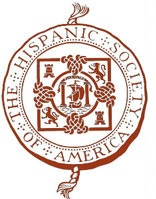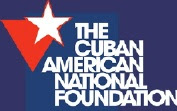
Columbia University Has No Right to My Land
By NICK SPRAYREGENSeptember 3, 2008; Page A21
In the Fifth Amendment to the U.S. Constitution, the government is permitted to take private property only for "public use."
This clause was once limited to true public projects such as the construction of highways, fire houses and public libraries. But over the last 50 years it has been bastardized by the powerful (in collusion with compliant politicians and the acquiescence of the courts) into a weapon used routinely to forcibly take other people's property for nonpublic uses. What is occurring in West Harlem today is a prime example of this abuse.
Columbia University , a private institution, officially announced its desire for a new campus five years ago. The university zeroed in on the Manhattanville area of Harlem -- between 125th and 134th Streets, and between Broadway and the Hudson River . Since that time, while wielding the sledgehammer of the possible use of eminent domain, Columbia has purchased roughly 80% of Manhattanville.
My family has owned for almost 30 years four commercial Manhattanville properties. We run a self-storage business, plus we lease to various large retailers such as a discount store and a supermarket. For over four years we have been fighting the state and Columbia in their joint attempts to condemn my properties for the school's expansion.
This week, the board of directors of the state agency threatening the condemnation -- the Empire State Development Corporation -- will hold two legally required public hearings, ostensibly to give the public a chance to be "heard." I believe that this is merely perfunctory.
Under New York state law, in order to condemn property the state first has to undertake a "neighborhood conditions study" and declare the area in question "blighted." Earlier this summer the state released its study, which concluded that Manhattanville is indeed "blighted."
This gives the state the legal green light to condemn my four buildings and hand them over to the university.
The study's conclusion was unsurprising. Since the commencement of acquisitions in Manhattanville by Columbia , the school has made a solid effort to create the appearance of "blight." Once active buildings became vacant as Columbia either refused to renew leases, pressured small businesses to vacate, or made unreasonable demands that resulted in the businesses moving elsewhere. Columbia also let their holdings decay and left code violations unaddressed.
Only a few years ago, this area was undergoing a resurgence. Virtually all property was occupied, many by long-standing family operations such as my own. Now most of those businesses are gone -- forced out by the university. Still, Columbia has not been able to freeze all positive change in the neighborhood. Just in the past few years, three upscale restaurants have opened here. They seem to be thriving.
There is also a conflict of interest in the condemnation process. The firm the state hired to perform the "impartial" blight study -- the planning, engineering and environmental consultant Allee King Rosen & Fleming, Inc. (AKRF) -- had been retained by Columbia two years earlier to advocate for governmental approval of the university's expansion, including the possible use of eminent domain.
When I go to court in a few months to contest the condemnation, I will face an overwhelmingly unfair process particular to New York , and to eminent domain trials. I will not be permitted to question any of the state or Columbia 's representatives, nor will I be allowed to have anyone take the witness stand on my behalf. My attorney will only be provided with 15 minutes to speak to the court on a matter that Columbia and the state have been working on for over four years.
Another problem is that in New York , the precise definition of what is blighted is nowhere to be found. It is virtually impossible to defend oneself from something that is not properly defined.
I am still denied access to documents with facts surrounding the Columbia expansion plan, asked for through Freedom of Information Law (FOIL) requests. I filed 12 different FOIL requests and have gone to court four times. The courts have now twice ruled that it was improper for the state to refuse to hand over all communication between it and AKRF.
Still, I look forward to my day in court. I am cautiously optimistic that it will expose as unconstitutional what Columbia and the state are attempting to do.
Mr. Sprayregen is the president of Tuck-It-Away, a West Harlem based self-storage company.








+(3).jpg)



.jpg)
+(3).jpg)


No comments:
Post a Comment